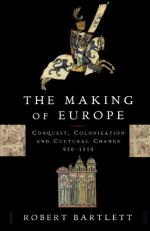|
This section contains 1,143 words (approx. 4 pages at 300 words per page) |

|
Increased Access. Throughout most of European history only the children of the elite had access to education. Europeans believed education would be of little use to the masses destined for the difficult life of unskilled labor. Lower-class families most often believed that their hard work, poverty, and lack of education were normal as well. Working-class families needed the labor of all family members, including the children as young as six. Such economic realities allowed little time for school. The religious reformations of the sixteenth and seventeenth centuries, however, had begun to stress literacy as important for salvation. In 1717 Prussia became the first state to mandate primary education. Similar reforms were gradually made throughout Europe, with uneven results for boys and girls. In the eighteenth and nineteenth centuries, many wealthy Catholic families sent their daughters to convents, where they learned to read in...
|
This section contains 1,143 words (approx. 4 pages at 300 words per page) |

|




